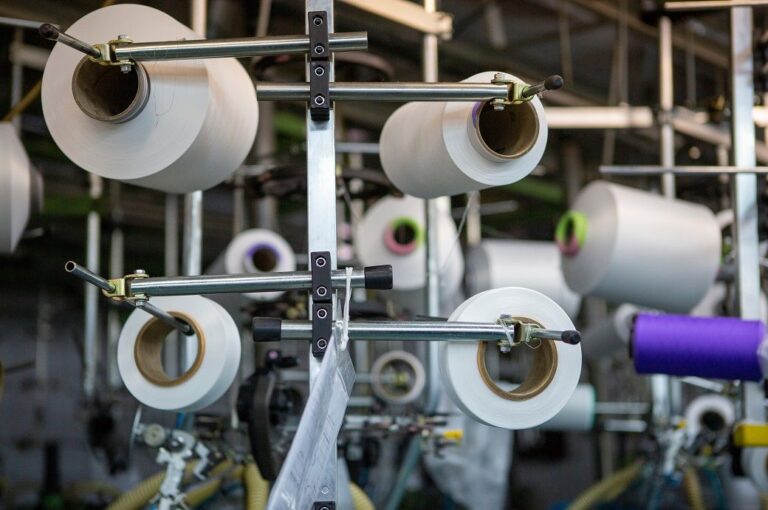
[ad_1]
The ministry of chemicals and fertilisers has extended the time for four QCOs until July 2, 2023. The government had earlier issued Quality Control Orders mandating BIS certification for import and domestic sales of various polyester products, including 100 per cent polyester staple fibre yarn. The mandate was issued to protect the interests of consumer industries, ensure production of higher quality products, and prevent the import of sub-standard MMF raw materials that affect the competitiveness of indigenous MMF fibre and filament yarn manufacturers.
India has extended the mandatory QCO on 4 polyester products for an additional 3 months until July 2, 2023, to alleviate difficulties faced by the industry in obtaining BIS certificates.
The minister of textiles has advised BIS to establish testing labs in major clusters and give accreditation to various private, government, and quasi-government labs.
While BIS standards already existed for approximately 1,500 textiles and clothing products, they were optional for manufacturers and buyers and were only used as guidelines.
However, the industry across the value chain has difficulties in obtaining BIS certificates within the prescribed time, especially the MSME nature of spinning mills manufacturing 100 per cent polyester staple fibre yarn, as they find it difficult to establish the prescribed testing equipment within the factory as per BIS guidelines.
The minister of textiles, Piyush Goyal, has advised the BIS to establish testing laboratories in all the major clusters and also give accreditation to various private, government, and quasi-government testing laboratories across the country to enable MSME textile units to test the products and comply with BIS guidelines. There are several niche raw materials that are not manufactured in the country for which the users find it difficult to convince the suppliers to obtain the BIS certification owing to limited volume. These raw materials are essential to meet the demands of the buyers in the international market and in the domestic market.
The industry body, Southern India Mills Association (SIMA), has welcomed this relief. Ravi Sam, chairman of SIMA, has thanked the government for giving a time extension for the aforementioned products and has appealed to the suppliers of raw materials and yarn manufacturers to obtain BIS certification on a fast track. He has also requested the BIS to expedite the certification process to avoid any disruption in manufacturing, cancellation of export orders, and its consequential impact.
Sam has further appealed to the government to give a similar time extension for viscose staple fiber as BIS is yet to provide BIS certification for suppliers from over 20 countries. Certain raw materials are manufactured only in a few foreign countries like China, Egypt, Austria, etc., such as bamboo fibre, which is predominantly used for the production of medical textiles, including baby wear, mother wear, socks, and intimate garments for diabetic patients.
Fibre2Fashion News Desk (KUL)
[ad_2]
Source link